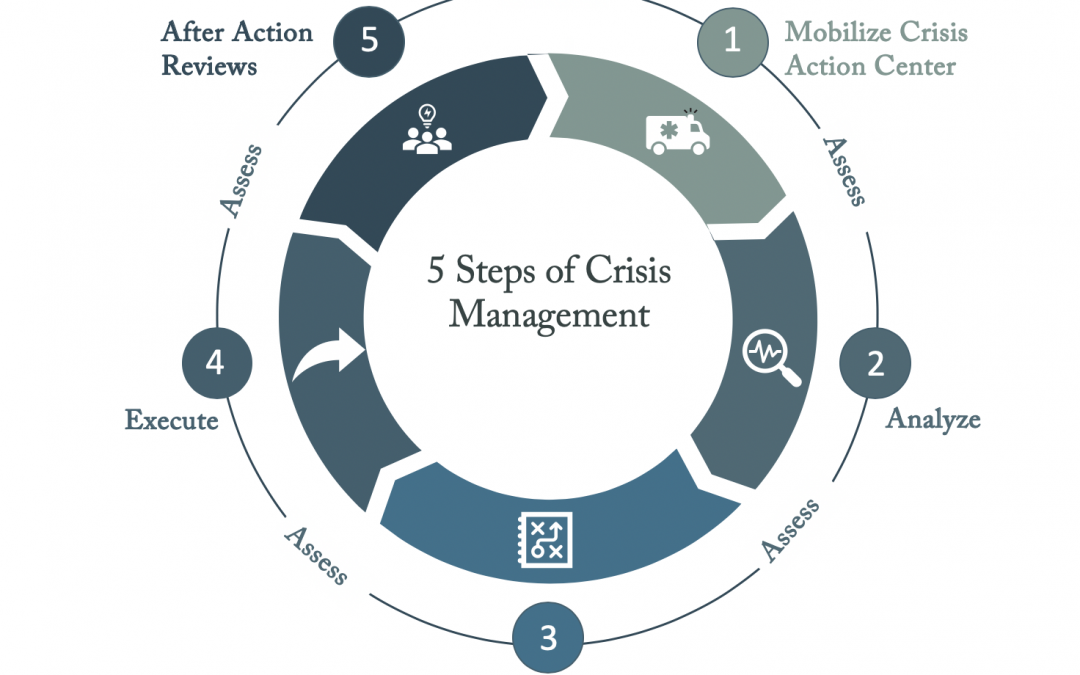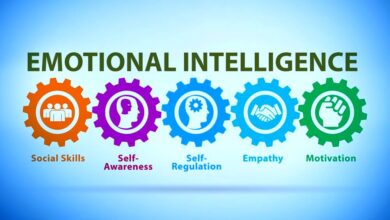
5 Keys to Developing Trust and Leadership in a Crisis
5 Keys to Developing Trust and Leadership in a Crisis – Navigating a crisis is never easy, but the ability to inspire trust and lead effectively during these turbulent times can make all the difference. It’s not just about technical expertise; it’s about the human touch, the ability to connect with your team and stakeholders on a deeper level.
This article delves into five crucial keys that can help you unlock your potential as a leader in a crisis, fostering trust and guiding your team through the storm.
From open communication and empathy to demonstrating competence and maintaining integrity, each key plays a vital role in building a foundation of trust and inspiring confidence. We’ll explore practical strategies and real-world examples to illustrate how these principles can be applied in various crisis situations.
Whether you’re facing a financial downturn, a natural disaster, or a public relations nightmare, understanding these keys can empower you to navigate the challenges with resilience and emerge stronger on the other side.
Transparency and Communication

In times of crisis, trust is paramount. Leaders must be transparent and communicate effectively to maintain and build trust with stakeholders. Open and honest communication fosters a sense of understanding, reduces anxiety, and empowers individuals to navigate the crisis effectively.
Effective Communication Strategies
Effective communication strategies are crucial for building trust during a crisis. By employing clear, concise, and consistent communication, leaders can ensure information reaches the right people at the right time.
- Be Proactive:Communicate early and often, even if information is limited. This demonstrates transparency and prevents rumors from spreading. For example, during the COVID-19 pandemic, many organizations proactively communicated updates on their response, safety measures, and operational changes.
- Be Honest and Transparent:Acknowledge the situation, including any challenges or uncertainties. Honesty builds trust and credibility, even when delivering difficult news.
- Use Multiple Channels:Utilize a variety of communication channels to reach different audiences. These may include email, text messages, social media, press releases, and internal communication platforms. For instance, a company could use email for internal updates, social media for public announcements, and text messages for urgent alerts.
- Be Empathetic:Acknowledge the impact of the crisis on individuals and communities. Expressing empathy and concern helps build emotional connections and fosters a sense of shared understanding.
- Be Accessible:Create opportunities for open dialogue and feedback. This can include Q&A sessions, town hall meetings, and online forums.
Communication Plan
A comprehensive communication plan is essential for managing a crisis effectively. This plan should Artikel communication objectives, target audiences, key messages, communication channels, and response protocols.
- Identify Key Stakeholders:Determine who needs to be informed and how. This includes employees, customers, investors, government agencies, and the general public.
- Define Communication Objectives:Clearly articulate what you want to achieve through communication. This could include providing updates, addressing concerns, reassuring stakeholders, or seeking support.
- Develop Key Messages:Craft clear, concise, and consistent messages that address key stakeholder concerns. These messages should be tailored to different audiences and communication channels.
- Establish Communication Channels:Choose appropriate channels to reach each target audience. This may include email, intranet, social media, press releases, website updates, and phone calls.
- Prepare Response Protocols:Develop procedures for handling media inquiries, managing social media, and responding to public concerns. This ensures a coordinated and timely response to crisis-related issues.
Communication Channels
A variety of communication channels can be used to disseminate information and engage with stakeholders during a crisis.
- Email:Suitable for internal communications, announcements, and sharing detailed information.
- Intranet:A secure platform for internal communications, providing access to company policies, procedures, and updates.
- Social Media:Effective for public announcements, engaging with stakeholders, and monitoring public sentiment.
- Press Releases:Disseminate official statements to the media and public.
- Website Updates:Provide a central hub for crisis-related information, including FAQs, resources, and updates.
- Phone Calls:Useful for urgent communications and personal outreach.
- Text Messages:Effective for sending short, urgent alerts and updates.
Empathy and Compassion
In the face of adversity, empathy and compassion are not just virtues; they are crucial tools for building trust and fostering effective leadership. When individuals feel understood and cared for, they are more likely to trust their leaders and work collaboratively towards a common goal.
Empathy in Crisis Leadership
Empathy, the ability to understand and share the feelings of others, is a vital ingredient in building trust during challenging times. When leaders demonstrate empathy, they create a safe space for open communication, vulnerability, and shared experiences. This fosters a sense of connection and shared purpose, even amidst uncertainty and hardship.
Examples of Compassionate Leadership
Leaders who embody compassion actively listen to their team members, acknowledge their concerns, and offer support in times of need. Consider the example of a CEO who, during a company-wide restructuring, personally reached out to each employee affected by the changes, offering guidance and support.
This gesture, demonstrating genuine care and understanding, helped to ease the anxieties and foster a sense of loyalty, even during a period of significant change.
Scenario: Empathy in Action, 5 keys to developing trust and leadership in a crisis
Imagine a team member struggling with a personal crisis, impacting their work performance. An empathetic leader would:
Acknowledge the situation
“I’ve noticed you’ve been under a lot of pressure lately. Is there anything going on that you’d like to talk about?”
Offer support
“I want to assure you that I’m here to support you in any way I can. Whether you need to take some time off, adjust your workload, or simply have someone to talk to, please don’t hesitate to reach out.”
Respect boundaries
In a crisis, clear communication, decisive action, and empathy are crucial for building trust and leadership. It’s about finding that delicate balance between being accessible and maintaining a sense of calm control. Just like a townhouse community is close to the beach but still feels very private , a leader needs to create a safe and secure space for their team to thrive, even amidst uncertainty.
By fostering a sense of shared purpose and understanding, leaders can navigate the choppy waters of crisis and emerge stronger on the other side.
“I understand this is a personal matter, and I’m not going to push you to share anything you’re not comfortable with. But please know that I’m here for you if you need me.”
Emotional Intelligence in Crisis Leadership
Emotional intelligence (EQ) plays a crucial role in crisis leadership. Leaders with high EQ are adept at understanding their own emotions and those of others, allowing them to respond effectively to challenging situations. They can:
Recognize and address emotional needs
Leaders with high EQ can identify and address the emotional needs of their team members, fostering a sense of security and support.
Manage their own emotions
In times of crisis, leaders need to maintain composure and avoid reacting impulsively. High EQ helps them regulate their emotions and make informed decisions.
Build strong relationships
In a crisis, strong leadership is essential, and it hinges on trust. Building that trust requires open communication, decisive action, and a willingness to take responsibility. The upcoming hearings, where former GOP lawmakers will testify, former gop lawmaker hearings will paint a picture of trump as abandoned isolated and near solely responsible , might offer a stark contrast to these key principles.
The events leading up to and during the Capitol riot will likely shed light on the importance of clear leadership and the consequences of failing to uphold those standards.
Leaders with high EQ are skilled at building trust and rapport with their team members, creating a collaborative and supportive environment.
Integrity and Accountability

In the face of a crisis, maintaining integrity and accountability is paramount. When trust is shaken and decisions are made under pressure, the ethical compass of leaders becomes a crucial guiding force. It’s during these turbulent times that the true measure of leadership is revealed.
Ethical Decision-Making in Crisis
Ethical decision-making in a crisis is a delicate dance between urgency and principle. Leaders must weigh the immediate needs of the situation against their long-term values and commitments. This process requires a clear understanding of the situation, a commitment to transparency, and a willingness to make difficult choices.
Ethical decision-making is not about choosing the easiest path but about choosing the right path, even when it’s difficult.
Examples of Leaders Maintaining Integrity
History is replete with examples of leaders who have demonstrated unwavering integrity during crises. * Nelson Mandela:During his 27 years of imprisonment for his fight against apartheid, Mandela remained steadfast in his commitment to non-violence and reconciliation. His unwavering belief in justice and equality served as a beacon of hope for millions.
Martin Luther King Jr.
Facing immense opposition and violence, Dr. King never deviated from his principles of nonviolent resistance. He led the Civil Rights Movement with courage and conviction, ultimately achieving significant progress for racial equality in the United States.
Framework for Holding Leaders Accountable
To ensure that leaders uphold ethical standards, a robust framework for accountability is essential. This framework should include:* Clear expectations and guidelines:Establishing clear ethical guidelines and codes of conduct provides a framework for decision-making.
Transparency and communication
Open communication and transparent reporting of actions taken are crucial for building trust and holding leaders accountable.
Independent oversight
Establishing independent bodies to review decisions and investigate potential misconduct ensures a fair and impartial process.
Navigating a crisis requires unwavering trust and strong leadership, qualities that often stem from a resilient mindset. Entrepreneurs, who face constant challenges, embody these qualities, as outlined in 11 mindset traits of successful entrepreneurs. These traits, like adaptability and problem-solving, are crucial in building trust and inspiring leadership during turbulent times, ultimately guiding teams through uncertainty towards a brighter future.
Consequences for unethical behavior
Leaders who violate ethical guidelines must face consequences, ranging from reprimands to removal from their positions.
Consequences of Unethical Behavior in Crisis Leadership
Unethical behavior by leaders can have devastating consequences, eroding public trust, undermining morale, and prolonging the crisis. Examples include:* Loss of public trust:Leaders who engage in unethical behavior lose the public’s trust, making it difficult to effectively address the crisis.
Damage to reputation
The reputation of an organization can be irreparably damaged by unethical actions of its leaders.
Legal consequences
Unethical behavior can lead to legal investigations and penalties.
Increased instability
A crisis can be exacerbated by the lack of trust and confidence in leaders who have acted unethically.
Resilience and Adaptability
In the midst of a crisis, the ability to bounce back and adjust to changing circumstances becomes paramount. Resilience and adaptability are not mere qualities; they are essential skills for leaders who want to navigate uncertainty and inspire their teams.
Examples of Adaptable Leaders
Leaders who demonstrate adaptability during a crisis often display remarkable foresight and the ability to shift strategies in response to unforeseen challenges. A notable example is how former New Zealand Prime Minister Jacinda Ardern’s leadership during the COVID-19 pandemic showcased adaptability.
Her government quickly implemented a strict lockdown strategy, which was later credited with helping to contain the virus. Ardern’s ability to communicate clearly, make decisions based on scientific evidence, and adapt to evolving circumstances was crucial in building public trust and navigating the crisis.
Strategies for Building Resilience
Developing resilience is a continuous process that requires a commitment to personal growth and a focus on building mental and emotional strength. Here are some strategies for building resilience in oneself and in a team:
- Practice Mindfulness:Engaging in mindfulness techniques, such as meditation or deep breathing exercises, can help individuals develop greater self-awareness and emotional regulation, which are crucial for navigating stressful situations.
- Cultivate a Growth Mindset:A growth mindset emphasizes the belief that abilities can be developed through effort and learning. This mindset encourages individuals to embrace challenges, learn from setbacks, and adapt to new situations.
- Build Strong Support Networks:Surrounding oneself with supportive friends, family, and colleagues can provide emotional and practical assistance during challenging times. Having a strong support network can help individuals cope with stress and maintain a sense of well-being.
- Foster a Culture of Learning:Creating a culture of continuous learning within a team can help members adapt to change and embrace new challenges. Encouraging open communication, sharing knowledge, and learning from mistakes can foster a resilient and adaptable team environment.
Learning from Past Crises
The ability to learn from past crises is essential for improving future responses. By analyzing past experiences, leaders can identify areas for improvement, develop contingency plans, and refine their crisis management strategies. This process of continuous learning can help organizations build a stronger foundation for navigating future challenges.
Closure: 5 Keys To Developing Trust And Leadership In A Crisis

In the face of a crisis, your leadership can be the beacon of hope that guides your team through uncertainty. By embracing these five keys – transparency, empathy, competence, integrity, and resilience – you can not only navigate the storm but also emerge stronger, with a reputation for leadership that inspires trust and confidence.
Remember, it’s not just about surviving the crisis; it’s about thriving in its aftermath, building a stronger and more resilient organization for the future.






